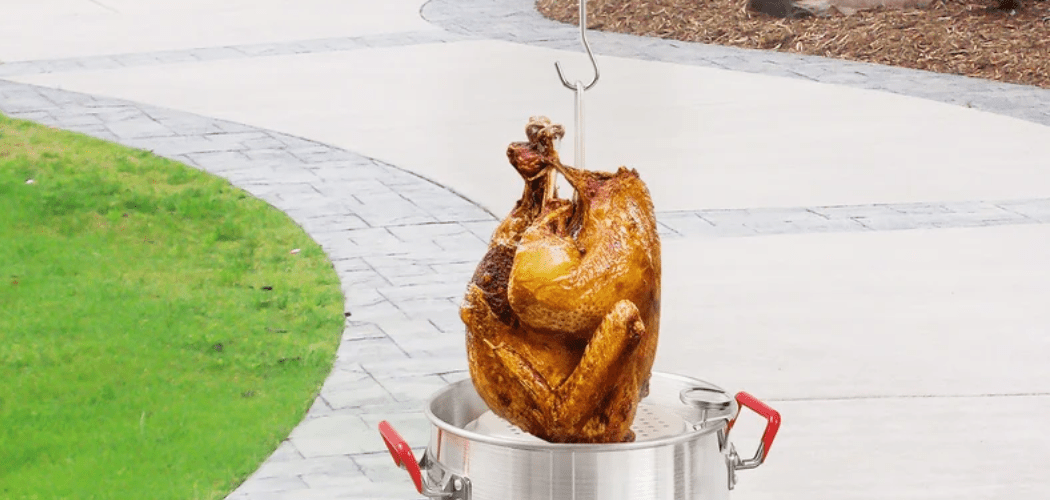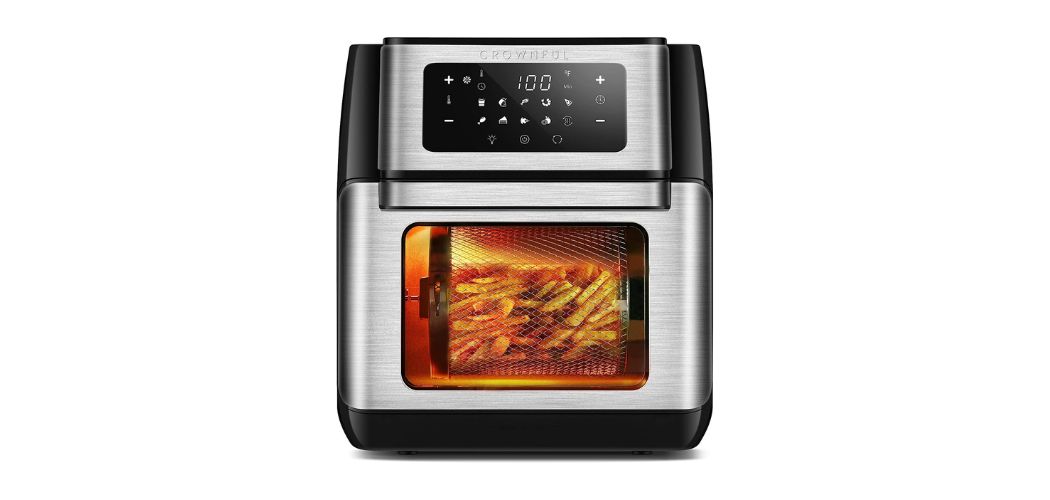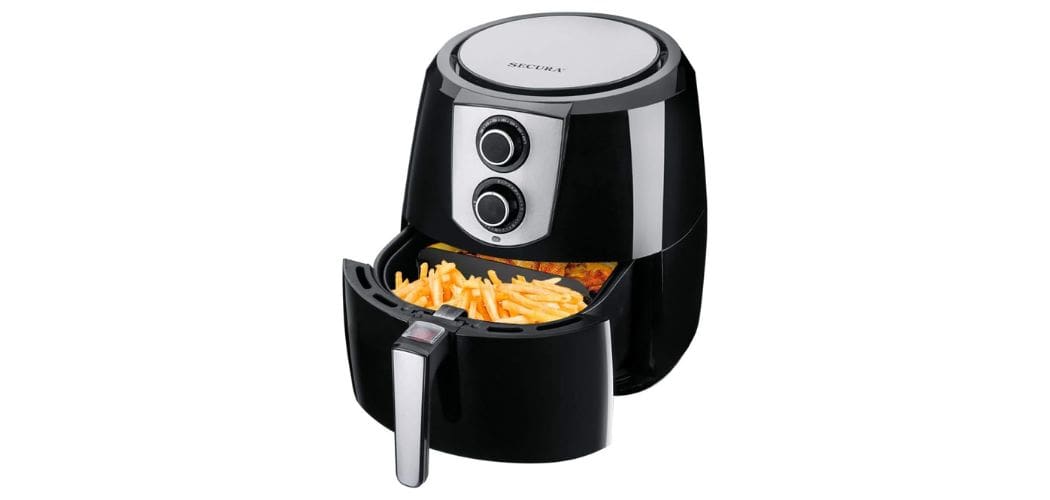Traditional oven preparation of a turkey involves meticulous planning, long roasting and flipping, and proper monitoring.
Thus, roasting a turkey has the potential to transform your Thanksgiving from a happy day spent with family into a stressful nightmare. Due to this, many brave foodies are opting to deep-fry their Thanksgiving turkey.
Just like any other fryer, a turkey fryer also involves oil. But how much oil does a turkey fryer take?
There are many factors to consider when determining how much oil you would require for a single person vs. a whole family.
Therefore, you must look at several variables to determine the right amount of oil.
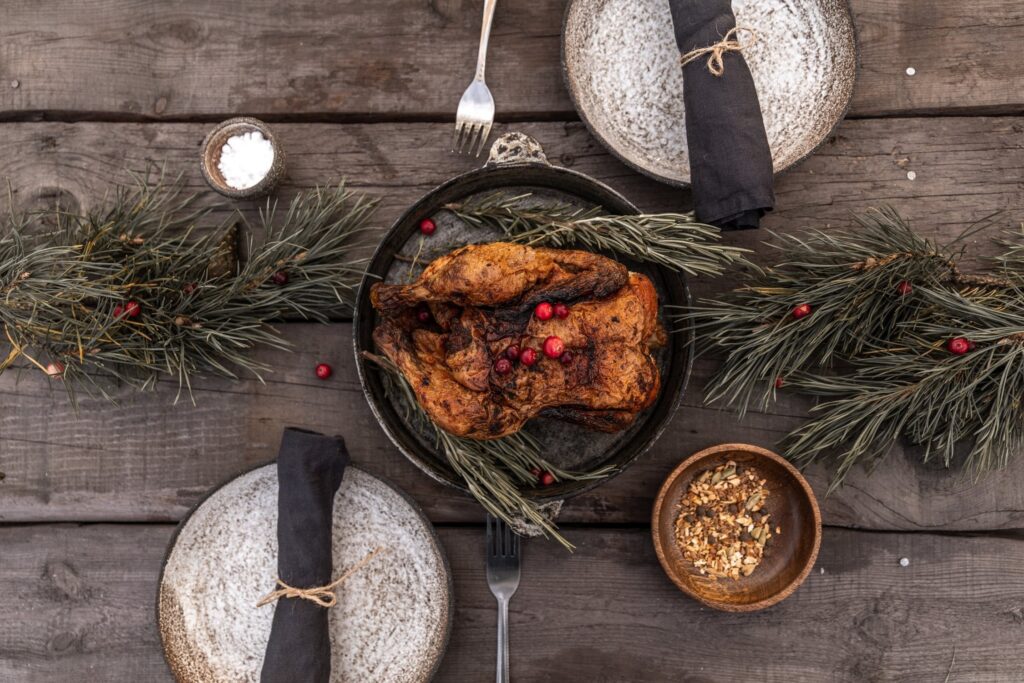
Read on to discover different ways to cook the perfect turkey without overdoing the oiling.
Table of Contents
How To Find The Correct Oil Quantity?
Place the turkey in your vacant fryer as if you were going to cook it to determine precisely how much oil you would need. Then fill it with water, ensuring that it just extends a few inches beyond the turkey and thoroughly covers it.
Next, remove the turkey, carefully pouring the water from the hollow back into the fryer so that there is nothing else except water. After removing the bird and draining it, mark where your water is sitting.
You may use this mark to determine how much oil your fryer requires. Up to the spot, load the fryer with fat. Some other considerations you need to take care of are:
The Oil:
Peanut oil is ideal for preparing turkey, yet it is not necessary. The highest flash point of any oil is found in peanut oil, making burning it particularly challenging. The oil will heat up considerably, which is excellent for frying turkeys.
Vegetable oil is a suitable replacement for peanut oil if you cannot use it due to a medical condition or if you do not have any.
Heat:
Even though peanut oil has a high energy density, you must constantly inspect it. One should fry a turkey in 325 degrees Fahrenheit oil. Don’t allow the oil to go over 375 degrees since it will start burning. This may start a fire and put you in danger.
Given its high smoke point of 445 degrees, peanut oil is excellent for deep frying.
At around 428 degrees, vegetable oil is a suitable replacement. Again, using other oils for frying may be hazardous, so be sure to choose one of these two.
Never put the turkey in the hot oil before it is ready. Place your turkey carefully in the deep fryer after the oil reaches 325 degrees.
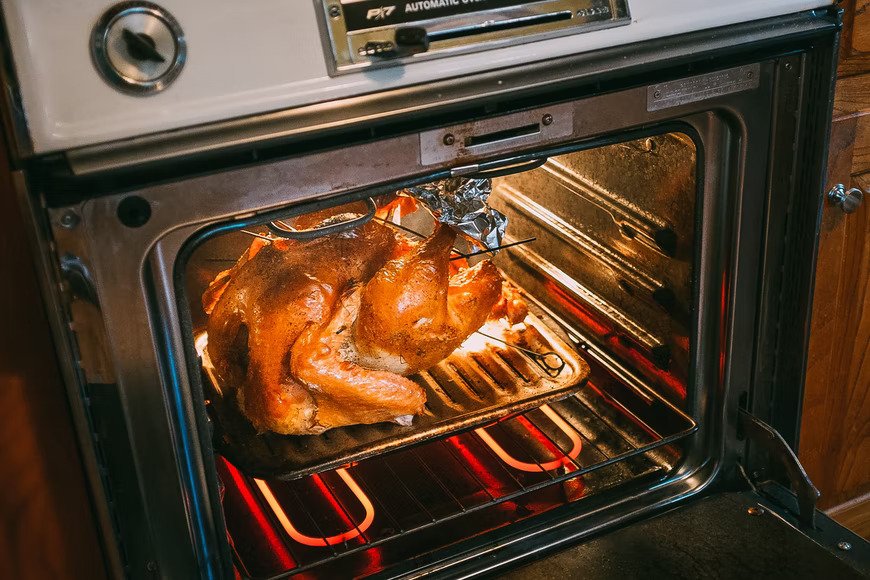
Preparation:
Although deep frying a turkey may bring new difficulties, you may still cook a turkey in the same manner. Injecting butter and several other fillings into the turkey is a popular choice. You can complete all of this before frying a turkey, so you don’t have to sacrifice the taste!
Brine:
One of the most common methods for seasoning turkey is brining. Typically, it has to soak for eight to eighteen hours in a bag with a lot of spices and marinades.
This method is often used during baking and frying turkeys. By brining your turkey beforehand, you do not need to worry about ruining the deep fryer.
Why Should You Be Careful When Frying Your Turkey?
Priority one when deep-frying an entire turkey should be your safety, and to ensure that, extreme caution is vital. Deep-frying a whole turkey is far less secure than deep-frying meals on a smaller scale.
Because the requisite equipment may be laborious, the large amount of hot oil needed for cooking an entire bird might be deadly. You may safely enjoy your turkey if you follow these safety recommendations:
Tip 1: Use Safety Gear
Put on safety gear in case there are oil splatters. When the oil heats, the deep fryer might seem a little daunting. It happens due to a bit of popping and splattering due to the high heat required to prepare the turkey.
You can put on oven gloves, an apron, and safety glasses to protect your skin and eyes from oil splashes if that happens.
Tip 2: Don’t Fry Inside
A turkey should never be deep-fried inside; always do it outside. Wooden decks and garages, even with the doors open, are off-limits.
It could be a bit chilly and icy on Thanksgiving, but if you’re dressed in your safety gear and safety glasses, you’ll be toasty and comfortable. And you won’t have to call the fire brigade because of any bursting decks and garages.
Tip 3: Keep Moisture Away
Keep in mind that water and oil are sworn enemies. Water makes oil bubble and leak, which may cause a fire to start very rapidly. Instead, stick to marinades and rubs that are safe for turkey.
Additionally, never try to cook a frozen turkey since the extra moisture will make the oil boil erratically and perhaps start a fire.
Tip 4: Get An Extinguisher
Keep a fire extinguisher close at hand. It will help you when things go south. It is advised to use a medium-sized dry chemical extinguisher. Just remain calm and put the fire out if the grease starts to burn.
Tip 5: Learn The Recipe Well
If you’re new to cooking, don’t try to experiment. For information on how to fry it properly, browse internet recipes and recipe books if you want your Thanksgiving meal to go well.
After deep-frying three or four birds, you may start experimenting with the recipe.
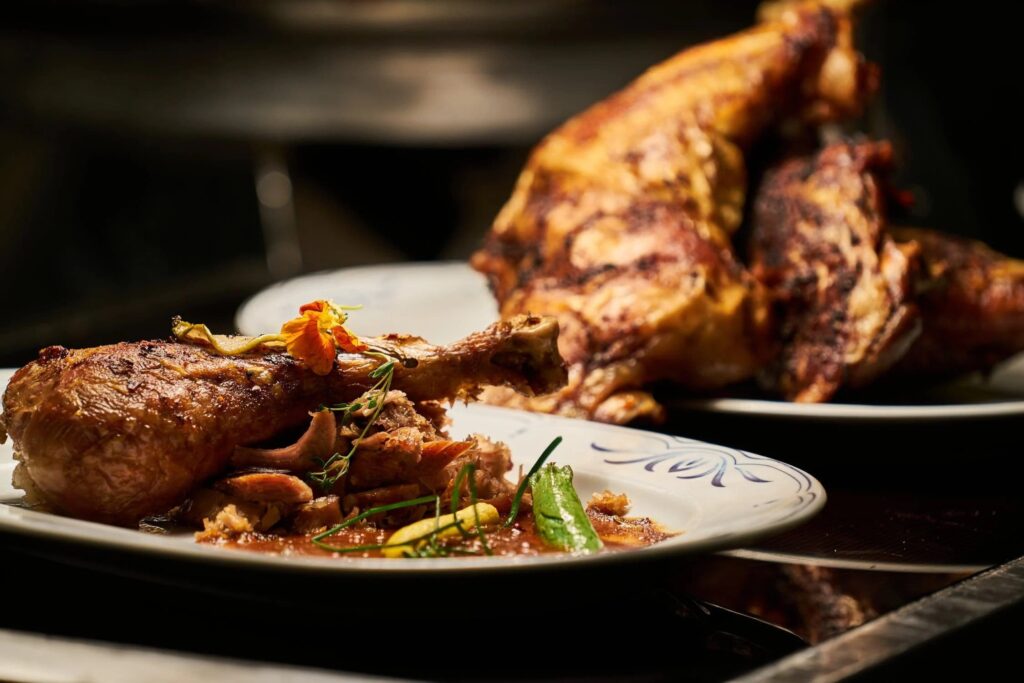
However, as a novice, concentrate on being safe, avoiding a grease fire, and deep-frying only one delectable bird.
Tip 6: Keep Everyone Away
Along with these suggestions, keep onlookers to a minimum while deep-frying a turkey. Never allow kids to be close to the cooking area. You may ensure both a delicious Thanksgiving turkey and one devoid of a deep-frying nightmare tale.
Frequently Asked Questions
Can You Fry A Big Turkey?
Even a 22-pound turkey is easy to fry in a turkey fryer such as Bayou Classic 1118 32-Quart Stainless Steel Turkey Fryer, although you may need to cut it into pieces. To preserve the whole turkey, choose one weighing between 9 and 14 pounds.
On Thanksgiving Day, presenting the entire bird rather than a portioned turkey has a more substantial visual effect. Additionally, the turkey may dry out during cooking and increase in its size.
How Long Should You Fry Turkey?
Deep-frying timings for a turkey are typically estimated as 3 minutes per pound, five minutes besides that. For instance, you must prepare 15 lb. Turkey in a turkey fryer for 50 minutes.
Is Peanut Oil Reusable?
Yes, provided that it is done correctly, you may reuse peanut oil. Before taking the oil from the pot:
- Let it cool thoroughly.
- Put it back into the original container for storage.
- Cover the oil and keep it in a cold, dark place when you store it. You can also place it in your fridge or freezer if you won’t be using it for a month or more.
Final Thoughts
Thanksgiving or any festival becomes more enjoyable and labor-saving by deep-frying the turkey. However, it’s crucial to make sure you’re doing it correctly. The most critical step in deep-frying a turkey is using the proper oil quantity.
Safety measures are also essential when using deep fryers, so take care to deep-fry carefully. The points above clearly outline the oil requirement and the precautions you must take when frying the turkey!

